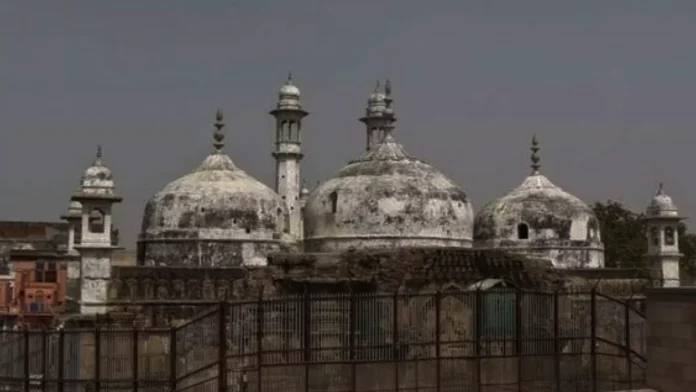February 26, 2024 : In a significant decision, the Allahabad High Court has ruled against a petition challenging the resumption of Hindu prayers at the Gyanvapi Mosque’s cellar, known as Vyas Ji Ka Tehkhana, in Varanasi. This decision comes after a long legal battle over the cessation of Hindu rituals at the site initiated by the Mulayam Singh government in 1993.
Background: Events Leading to the Legal Battle
The controversy dates back to the aftermath of the Babri Masjid Demolition in 1992 when then Chief Minister Kalyan Singh’s government was dismissed, and President’s Rule was imposed. Subsequently, the Mulayam Singh Yadav-led government cited law and order concerns to seal the Vyas Ji Ka Tehkhana, where Hindu prayers were conducted, within the Gyanvapi Mosque premises.
Legal Proceedings and Arguments
The Vyas family, claiming ownership of the property since 1551, filed a suit in September 2023 to challenge the state government’s order. The District Court in Varanasi, on January 31, 2024, allowed worship to resume in the cellar, leading to an appeal by the Anjuman Intezamia Masjid Committee.
The committee argued that the mosque’s religious character was established through historical legal cases and legislation, such as the Places of Worship (Special Provisions) Act, 1991, which froze the religious character of places of worship as of August 15, 1947. On the other hand, the Vyas family contended that they had continuous possession of the cellar, emphasizing a map submitted in a previous case.
High Court’s Verdict
The Allahabad High Court dismissed the appeal, labeling the Mulayam Singh government’s order as “illegal” for restraining Hindu prayers in the cellar without a written directive. The court cited Article 25 of the Indian Constitution, which guarantees religious freedom, emphasizing that citizens’ rights cannot be arbitrarily curtailed by the state.
Furthermore, the court highlighted the Vyas family’s continuous possession of the cellar and the failure of the mosque committee to establish prima facie possession over the disputed property. The judgment underscores the importance of respecting religious freedoms and ensuring legal clarity in matters of worship.
Implications and Future Steps
The court’s decision not only reaffirms the rights of the Vyas family but also opens avenues for further investigation into the religious character of similar sites within the Gyanvapi Mosque complex. The ruling sets a precedent for upholding religious freedoms and protecting the rights of all communities in matters of worship.
In conclusion, the Allahabad High Court’s verdict marks a significant chapter in the legal battle over the Gyanvapi Mosque’s cellar, emphasizing the need for adherence to constitutional principles and legal clarity in religious disputes.
